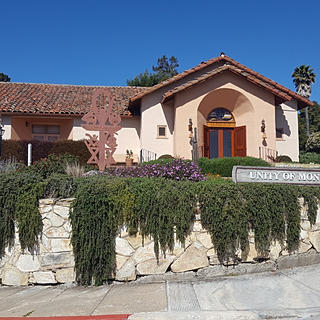Rev. Vicky's Message August 3, 2023
- M Price
- Aug 3, 2023
- 2 min read
I spent this past weekend helping my sister, Karen, begin to sort through 20 years of her life’s collections as she begins to prepare her home to be put on the market. I have been engaged in a similar process at my own home, making space for Karen to eventually move in with me. All which has me reflecting on the challenges and blessings of change.
Especially major changes, like moving, and especially later in life…as many of us get increasingly “set in our ways.” So I began looking for ways to ameliorate the stressors and amplify the blessings of such changes. And no surprise…GRATITUDE has been proven to help regulate and reduce anxiety and stress while increasing resilience and joy.
In fact, “significant studies over the years have established the fact that by practicing gratitude we can handle stress better than others. By merely acknowledging and appreciating the little things in life, we can rewire the brain to deal with the present circumstances with more awareness and broader perception.”
In the book ‘Grateful Brain,’ author Alex Korb (2012) said that our brain is conditioned to function in a repeated way. For example, a person who worries too much about the adverse outcomes will subconsciously re-wire his brain to process negative information only. Korb has mentioned that our mind cannot focus on positive and negative information at the same time.
By consciously practicing gratitude, we can train the brain to attend selectively to positive emotions and thoughts, thus reducing anxiety and feelings of apprehension.
“It is impossible to feel depressed and grateful at the same moment.” (Naomi Williams)
Moreover, modern research and studies indicate that gratitude builds emotional resilience by:
Helping us to see the positive things in life
Fighting the negative ruminations and rebuilding pessimistic thoughts with optimistic ones
Staying grounded and accept the present situation, even if that is a harsh reality
Identifying and focusing only on solutions
Maintain good health by regulating our metabolic functioning and by controlling the hormonal imbalances
Sustain relationships and appreciate people who are there for us. As a result, we feel more loved, cared for, and more hopeful.
“It is not happiness that brings us gratitude. It is gratitude that brings us happiness.”
Grateful people can derive more happiness and pleasure in daily life. As mentioned by G.K. Chesterton in his famous agricultural metaphor, the pursuit of true happiness is much the same as cultivation. We won’t get the desired result unless we nourish and nurture the seeds properly (Chesterton, 1986). The effects of practicing gratitude are not immediate, and they don’t appear magically.
But once started, gratitude continues to impact our physical and psychological wellbeing for years. As Oprah Winfrey once said:
“Be thankful for what you have, you’ll end up having more. If you concentrate on what you don’t have, you will never ever have enough.”
(From “The Neuroscience of Gratitude and Effects on the Brain” 9 Apr 2019
Namasté,
Rev. Vicky














Comments